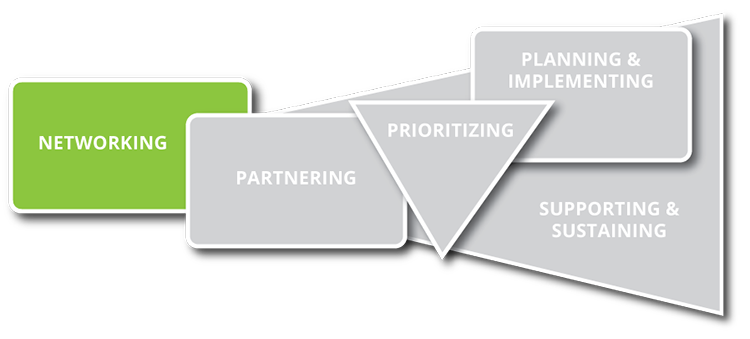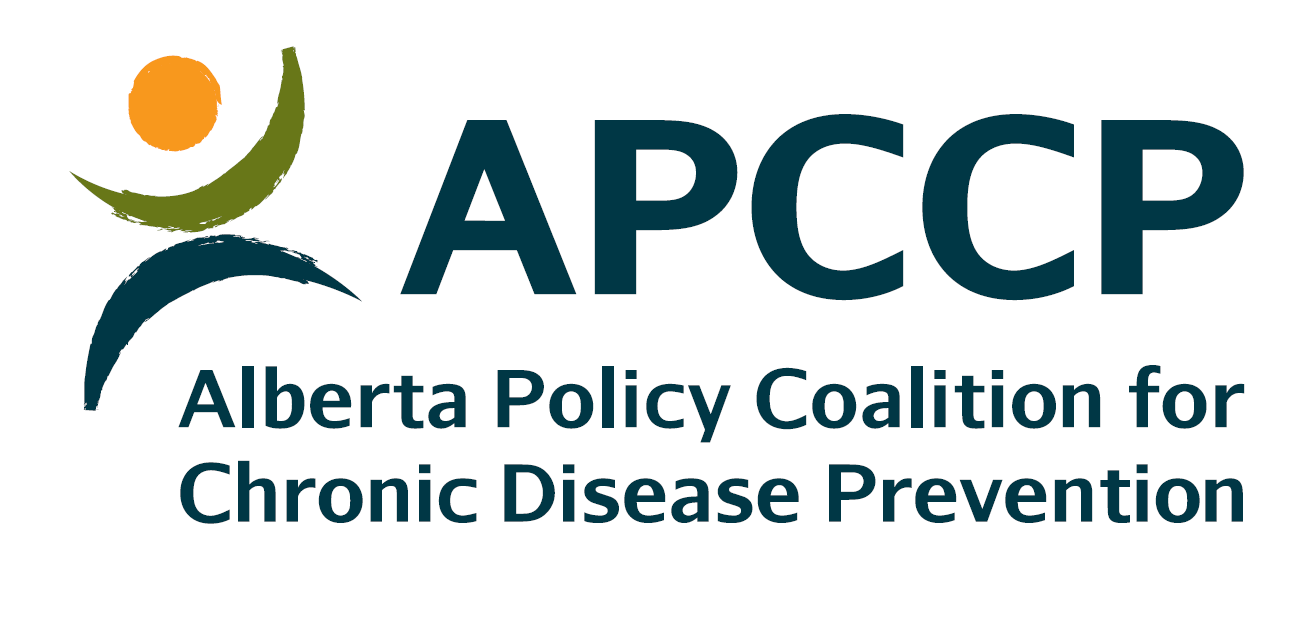 Networking is an early phase in the process of capacity building. Networking requires a significant amount of time that you spend in the community to:
Networking is an early phase in the process of capacity building. Networking requires a significant amount of time that you spend in the community to:
- Allow your community to learn about you and your intentions
- Increase your overall knowledge about the community and its existing issues
- Raise awareness about health promotion
- Broaden the understanding of health beyond personal choices and behaviours of individuals by including the political, social, physical and economic issues that influence the development of chronic diseases
- Identify key players (individuals and organizations) who can contribute to the health promotion initiatives
- Explore the potential area and/or scope of influence (the size and boundaries of your community)
While initiating a health promotion project, you will notice that the networking activities could change and move through different stages and purposes. Depending on your prior connections with the community, the scale of your project idea or the size of your community, these stages could have different lengths and characters. They often spontaneously grow from one phase to another.
At the beginning, your networking activities may be in the form of informal chats with people to find out important information about your community. It is more about listening and learning about who the key players are and what could be done to promote health in the community. This activity could be called “exploratory networking”. It can happen practically anywhere: at the official meetings or during the gatherings in a local coffee shop.
These informal chats may inspire you to go forward and get engaged in more formal conversations with individuals and organizations in order to build trust and strengthen relationships. This type of activity could be called “purposeful networking”. If you are a person who is already well connected and engaged in the community, it will be easy for you to get engaged in “opportunistic networking”.
Opportunistic networking simply means on-going openness to existing opportunities (personal connections, projects, organizations) in the community to gather necessary information and create partnerships around health promotion ideas.
Explore other steps
Ask Yourself:
- What is your personal motivation that moves you towards health promotion?
- What do you know about the health in your community? What information are you missing?
- Who are the people and organizations that can provide you with the information you need? What other resources can you use for information gathering?
- What was the nature of your past involvement in the community?
- Who are some of the people and organizations that you worked with in the past? Did you have a positive or negative experience? Can they be approached again in relation to a health promotion initiative?
- Are you willing to invest the time necessary for networking activities?
Tools & Resources
First steps in networking…
“The fact that I was an outsider in the community meant that I had to work harder.” – DIANNE GILLESPIE
“The awareness of changes in economic and political environment makes a difference in how you create contacts with the key players in the community.” – FLORENCE SENECAL
“With health promotion, it is looking at things in the community that aren’t ordinarily looked at in health. “ – MOLLY HANSON-NAGEL
“I took a different approach: I used initiatives instead of talking about health promotion.” – MARGO FAUCHON
Different approaches to networking…
“It took a good twelve months to build trust of the key players in the community.” – DIANNE GILLESPIE
“At the very beginning, it was very broad based. I started with the St. Paul phone book.” – MARGO FAUCHON
“I used my existing contacts to develop new connections with the key players.” – MOLLY HANSON-NAGEL



